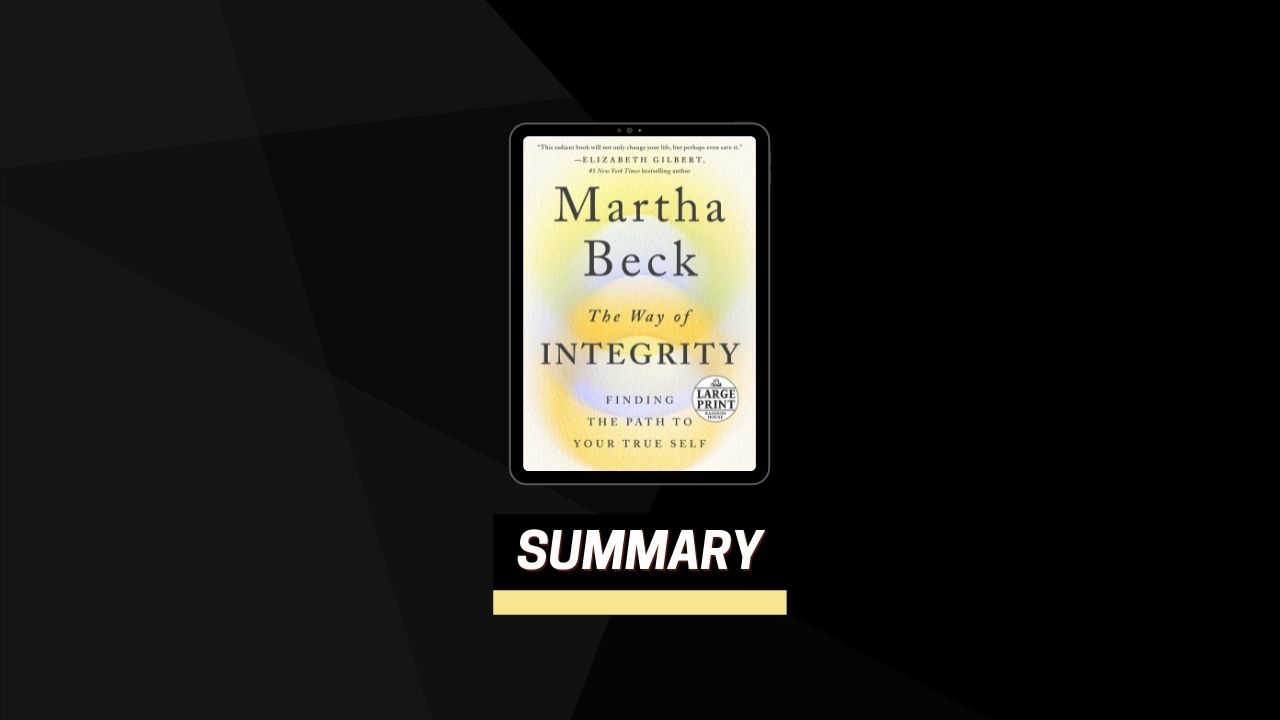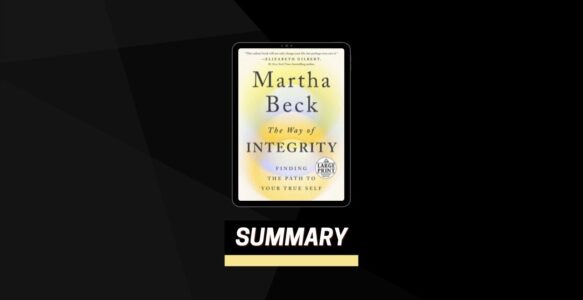Kindle | Hardcover | Audiobook
Lost in the Woods
DARK WOOD OF ERROR SYNDROME
There have probably been times when you, too, have departed from your own true path. At first, the resulting suffering may have been so mild you didn’t even notice it. But no one can sleepwalk away from integrity indefinitely, because things get worse the further we travel in the wrong direction. Eventually, if we don’t correct course, we begin displaying clusters of characteristic symptoms. You may have had them in the past. You may have them now.
Call any cluster of these symptoms “dark wood of error syndrome.” But it’s not a bad thing. It’s the way our instincts motivate us to regain our integrity. It’s the truth come to set us free.
Dark wood of error symptom #1: Feeling
Our sense of purposelessness doesn’t disappear in the face of culturally defined achievements. It remains a persistent, goading force, a biting fly that won’t stop buzzing around our heads until we begin pursuing goals that truly fulfill us—in other words, following the way of integrity. And if the whine and sting of purposelessness isn’t enough to shake us out of our sleepwalking, our subconscious minds will up the ante. They’ll summon the megafauna, the mental wild beasts we call mood states.
Dark wood of error symptom #2: Emotional misery
Whatever your repeated or persistent negative emotions, try thinking of them as wild beasts, whose job it is to make your life unbearable when you stray from your true path. If the feelings don’t go away even though you’re taking your medication and meeting regularly with your therapist, you can be quite sure you’re somehow out of integrity. The sooner you acknowledge this the better, because remaining in the dark wood of error may eventually cause you actual, physical harm.
Dark wood of error symptom #3: Physical deterioration
There are all kinds of physical ailments that affect people who are living in complete integrity. Everyone dies, and there’s plenty of physical pain that has nothing to do with keeping secrets, telling lies, or wandering off true paths. Still, every time we make choices or assume appearances that don’t align with our integrity, we really do become more vulnerable to physical problems, from back spasms to pneumonia. If you’re inexplicably sick, weak, or accident-prone, your body may be trying to tell you you’re lost in the dark wood.
Dark wood of error symptom #4: Consistent relationship failures
If you feel constantly drained or betrayed in family, friendship, and romance, the relationships you’re forming are probably based in the dark wood of error. We simply can’t chart a course to happiness by linking up with others who are as lost as we are. The path to true love—true anything—is the way of integrity. No other person can ever find yours for you, much less give it to you. But you can always, no matter what your circumstances, find and follow it yourself.
Dark wood of error symptom #5: Consistent career failures
There are infinite ways to make a living. At some level—a deep, instinctive level—you know which of them will truly work for you. You can feel it immediately when a job requires you to push aside your true desires. Your awareness of your true career path may be buried deep under layers of acculturated false beliefs. But it’s still there, like a flower trying to grow through toxic sludge. If you continue to resist your genuine impulses, you’ll become slowly aware that what you’re doing to make a living is turning you into the walking dead.
Dark wood of error symptom #6: Bad habits you can’t break
If you feel unable to stop an activity, if you’re spending the rent money on it, if you hide it from others and feel a creeping obsession slowly consuming you, your first step toward integrity—a big one—might be acknowledging that you’re addicted. From there you can begin regaining your integrity.
Whatever happens, if you don’t leave the dark wood of error, you’ll find your bad habits almost impossible to break. Eventually, they may well break you.
EXERCISE: Finding integrity in the dark wood
Here is a simple exercise that will put your feet squarely on the way of integrity, no matter how lost you may feel. Below you’ll find a list of simple statements. Your job is to say them out loud. Whisper them privately, proclaim them to a friend, shout them at the next telemarketer who interrupts your day. And just for a moment, as you say each sentence, tentatively accept that it might be true.
Now here’s the important part: as you speak each sentence, feel what happens inside you. Your pride may sting, your inner critic may put its back up like a startled cat. But does your body relax a little, despite the apparent negativity of a given statement? Does your breath deepen? Do you feel a battle easing in your gut, your heart, your head? Just notice this. Don’t worry about what comes next. Okay, go.
My life isn’t perfect.
I don’t like the way things are going.
I don’t feel good.
I’m sad.
I’m angry.
I’m scared.
I’m not at peace.
I can’t find my people.
I’m not sure where to go.
I don’t know what to do.
I need help.
If you felt something settle in your body and emotions when you read one or more of the statements above, don’t ignore it. That slight relaxation is your instinctive response to hearing—and, more importantly, speaking—the truth. If you can feel it, be proud of yourself. Things aren’t perfect, but you’re awake to the fact that they’re not perfect, and that is everything. You’re reconnecting parts of yourself that have been torn apart. Bravely done. You’ve taken the first step on the way of integrity.
The End of Self-Betrayal
THE HIGH PRICE OF LYING
We sometimes say that deception traps us in a “tangled web,” but the metaphor of being frozen into ice may be even more apt. Lies tend to proliferate: tell one, and we often end up needing several more to support it. The more deceitful we get, the more we feel forced into actions that uphold our stories. We can’t talk freely, can’t do things that would break the narrative, can’t relax. We begin to lose emotional connection with the people we’ve lied to. Our lives become increasingly cold, lonely, and numb. We may end up feeling completely frozen, able to see the world but not touch or feel it.
This separation from life and love makes everything seem pointless. It’s also exhausting. Hiding our crimes, acting cheerful despite hidden anguish, or lying to impress people requires a constant, sustained effort. It ties up large areas of the brain, so that all our thinking becomes foggier and slower. Lying is so hard that most animals can’t even attempt it. (The few who try don’t do it well. Koko, the famous gorilla who could communicate in sign language, once pulled a sink off the wall during a temper tantrum. When humans asked her what had happened, Koko pointed at her kitten and signed, “Cat did it.” Nice try, friend, but no cigar.)
It isn’t just our brains that struggle when we lie; our bodies weaken and falter as well. One study showed that people who present “an idealized image of themselves” had higher blood pressure and heart rates; greater hormonal reactions to stress; elevated cortisol, glucose, and cholesterol levels; and reduced immune-system functioning. Lying and keeping secrets have been linked to heart disease, certain cancers, and a host of emotional symptoms like depression, anxiety, and free-floating hostility.
THE SHOCK OF TRUTH
Some of the truths you’ll uncover will ping the clear chime of truth that is your inner teacher saying yes. Some will set your whole mind ringing like a gong. Seeing a really deep truth, something that’s been locked away in semi-consciousness or even unconsciousness, can make sudden sense of a million troubling shadows, of other people’s behavior, of your own feelings. This truth will make sense to your body, mind, heart, and soul. It will feel wildly liberating. And it may very well terrify you.
At this point it’s important to understand that if you feel that you’re approaching an unbearable truth or trauma, don’t go forward without enlisting professional help. Hire a therapist, call a crisis hotline, join a group of people who are excavating their truth together. The lies that are hardest to cope with are frozen and buried because they’re literally unbearable. You can’t carry them alone. Get help.
That said, unless you’ve experienced profound trauma, your deepest lies probably aren’t devastating enough to need this kind of support. Maybe you’re just reluctant to face the fact that you’re getting farsighted, or that you actually do have a favorite child, or that some of your friendships just don’t work. But whatever your lies are, digging through them will eventually take you to the center of your inferno.
Humanity at the Gates
THE TIPPING POINT OF AWAKENING
When we first begin following the way of integrity, it’s like cleaning a dirty windowpane, where false beliefs have muddied the clarity of our minds. At first we can only scrub away in the dark, not even able to see what we’re doing. After a while, glimmers of light start to sparkle through here and there. At some point the process accelerates rapidly. As bigger areas come clean, we get more motivated, more able to see how the process works. At some point, the whole windowpane effectively vanishes and lets light pour through unobstructed.
This process may apply not just to individuals but to groups of people and humanity as a whole. Throughout history, individuals who are “awake” have been points of clarity where light shines through to others. And as Margaret Mead famously said, “Never doubt that a small group of thoughtful, committed citizens can change the world. Indeed, it is the only thing that ever has.” Groups committed to truth and compassion become patches of translucency, even transparency. As this process continues, it’s conceivable that humanity as a whole might someday reach the tipping point of enlightenment
So follow the way of integrity for your own sake, to leave suffering behind you and experience as much happiness as possible. But don’t be surprised that as you do this, your own life will become a clear space through which more and more light shines for others.



